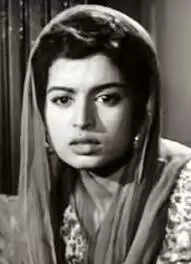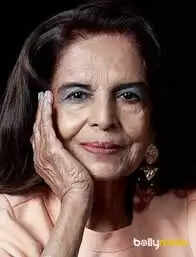Know More About Kalpana Kartik

Early Life and Background Kalpana Kartik, born as Mona Singha, is a name that is mentioned in the same context as the best in the industry when we refer to Indian cinema. Born in 1931 in then British India (Lahore), she belonged to a Christian Punjabi family. Her father was a government official, which instilled in her a very structured and traditional upbringing. Post Partition, the family shifted to Shimla, which also saw her through her educational years at St. Bede’s College, which is known for its academic and artistic development of young women.
Entry into the Film Industry
In a turn of chance rather than design, Kalpana Kartik’s foray into the film industry happened. While in school in Shimla, she won a local beauty pageant, which put her in the public eye. Director Chetan Anand saw her at one of these events and gave her a role in his up and upcoming film. She was given the screen name of “Kalpana Kartik,” which would go on to become very iconic in the 1950s.

Her film debut was in Baazi (1951), which saw her working with Guru Dutt at the director\'s chair, and also to that film came Dev Anand in the lead role. What won her over was her grace and the way she played, which in turn did very well with the audience, thus beginning a short-lived but very memorable film career.
Rise to Fame
Kalpana Kartik soon shot to fame with a series of hit films she shared with Dev Anand. To name a few, which made her a lead actress in every home, Taxi Driver (1954), House No. 44 (1955) and Nau Do Gyarah (1957), and also Baazi. Also, it was the on-screen chemistry between her and Dev Anand that did very well at the box office and also with the audience.
What made Kalpana stand out was her quiet elegance and dignified screen presence. At a time when the industry was filled with larger-than-life heroines, her reserved acting style brought a different element to Hindi cinema.
Personal Life and Marriage
Kalpana Kartik’s private life was a different story from her film career. In the middle of shooting Taxi Driver, she tied the knot with her co-star Dev Anand in a very private affair. The media did not report their love story, which went almost unseen, as the couple preferred that way. After marriage, Kalpana pulled back from the film industry and into family life.
During a time out from the public eye, Kalpana played an important behind-the-scenes role. She was a part of Navketan Films, the production company which Dev Anand and his brothers ran, and she did it all very much in private.
Life Away from Films
Following the years after her acting career ended, Kalpana Kartik kept a low profile. She would appear at film events or family functions, but for the most part, she stayed out of public view. Her choice to step back from what could have been a very successful film career into private life only added to her enigma.

She also has been a part of many charities, which she doesn’t often speak of. Her friends describe her as warm, intelligent, and very spiritual.
Legacy and Influence
Kalpana Kartik’s legacy in Indian cinema is in the quality of her work she left behind rather than the quantity of films she was in. Her short but brilliant time in Bollywood made her a memorable star of the golden era. She proved that a long filmography is not a requirement to leave a mark.
Also out of the public eye, she did what many thought to be a very brave thing, which in our time was very rare for actresses’ issues in marriage and post that were very much left unsaid. In the history of Indian cinema, Kalpana Kartik is a symbol of grace, talent, and quiet strength.



